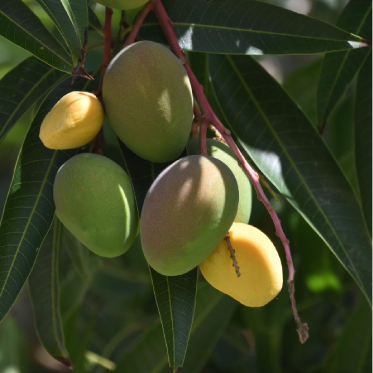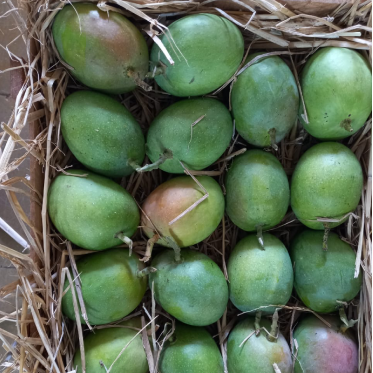The Alphonso mango market in India is segmented into online, retail, and wholesale channels, each with distinct dynamics:
Online Market
- The online market for Alphonso mangoes is expanding due to the convenience of doorstep delivery and nationwide distribution. Several e-commerce platforms sell premium mangoes directly from farmers, and dropshipping models are prevalent. Farmers and distributors use platforms like Facebook, Instagram, and their websites to reach consumers directly
- Online platforms cater to a broad audience, offering features like pre-orders, gift packaging, and corporate gifting options, making this channel a growing part of the mango trade.
Retail Market
- Retail sales are driven by consumer demand for fresh produce in urban markets. Seasonal stalls, supermarkets, and organic stores contribute significantly to retail distribution. The retail segment often focuses on high-quality, carbide-free mangoes to meet customer preferences.
- Retail pricing for Alphonso mangoes is influenced by production quality, demand, and market location, with premium varieties fetching higher prices
Wholesale Market
- The wholesale market is the backbone of Alphonso mango distribution, serving domestic and international demand. Large-scale buyers, such as exporters, retailers, and juice manufacturers, source from wholesalers.
- Wholesalers often buy in bulk from Konkan regions like Ratnagiri, Devgad, and parts of Karnataka and Tamil Nadu, ensuring a steady supply to downstream markets. Quality grading (e.g., A++ for export) plays a crucial role in determining pricing
Market Size and Growth
India is the largest producer of Alphonso mangoes, and the growing popularity of carbide-free and organic varieties has added value to both domestic and export markets. Government initiatives to promote mango exports further enhance market growth. However, seasonality and quality challenges remain constraints
For a business looking to enter this market, focusing on high-quality, organic, and value-added products (e.g., pulp, gift baskets) can help maximize profitability across all channels.
The Agricultural Produce Market Committee (APMC) markets in India, particularly in Maharashtra, play a significant role in the distribution and pricing of Alphonso mangoes. Key insights into these markets include:
- Volume and Demand: APMC markets like those in Vashi and Mumbai handle substantial volumes during the peak Alphonso season. For example, over 65,000 to 80,000 boxes of Alphonso mangoes arrive daily during the harvest months. This volume often leads to price fluctuations, influenced by supply levels and weather conditions
- Pricing Trends: Alphonso mango prices in these markets vary based on quality and size. Current wholesale prices range between ₹600 and ₹1000per dozen, while retail prices extend from ₹800to ₹1,800 per dozen. These rates are slightly lower than previous years due to higher arrivals and competition from other regions like Karnataka
- Farmer Dynamics: Farmers often expedite shipments to mitigate losses from potential adverse weather. This urgency impacts the market supply chain and the consistency of pricing. Additionally, significant investments in tree treatments and maintenance (e.g., around ₹14,000 per tree annually) influence farmers’ financial strategies
- Quality and Geographical Indicators: GI-tagged Alphonso mangoes from regions like Ratnagiri and Devgad are highly sought after for their distinctive taste and aroma. This tagging enhances the market value and differentiates them from mangoes of other origins
The APMC markets are critical hubs for both domestic and export markets, ensuring the flow of Alphonso mangoes across India and abroad. These platforms also help stabilize prices and provide access to buyers from different segments.










